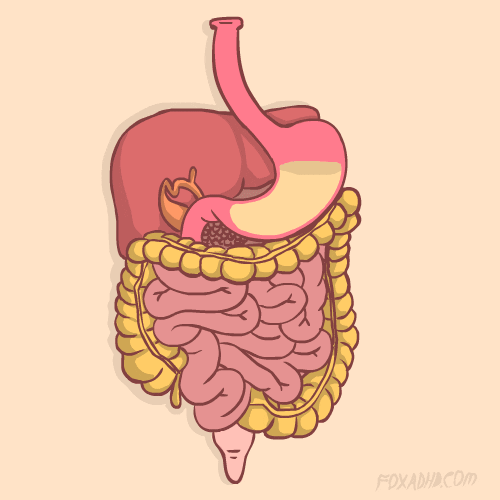Indigestion, often referred to as dyspepsia, is a common ailment that can leave you feeling uncomfortable and frustrated. It typically manifests as a collection of symptoms that may include bloating, gas, heartburn, and a general sense of fullness after eating. You might find that certain foods or eating habits exacerbate these feelings, leading to a cycle of discomfort that can be hard to break.
Understanding the underlying causes of indigestion is crucial for managing and alleviating its symptoms effectively. The causes of indigestion can vary widely from person to person. For some, it may be linked to dietary choices, such as consuming spicy or fatty foods, while for others, it could be related to lifestyle factors like stress or overeating.
Additionally, certain medical conditions, such as gastroesophageal reflux disease (GERD) or peptic ulcers, can contribute to the onset of indigestion. Recognizing the symptoms and understanding their triggers can empower you to take control of your digestive health and make informed decisions about your diet and lifestyle.
Looking for real solutions to your health issues? Vitamin G Nutraceuticals take a holistic approach to health. The Vitamin G range of supplements target the root of your problems, instead of just masking the symptoms.
Click here to learn more – your body will thank you!
Key Takeaways
- Indigestion can be caused by various factors such as overeating, fatty or spicy foods, and smoking, and is characterized by symptoms like bloating, nausea, and heartburn.
- Dietary changes such as avoiding trigger foods, eating smaller meals, and staying hydrated can help manage indigestion.
- Lifestyle modifications like quitting smoking, managing stress, and maintaining a healthy weight can alleviate indigestion symptoms.
- Over-the-counter remedies like antacids and acid reducers can provide relief from indigestion symptoms.
- Natural remedies such as ginger tea, chamomile tea, and peppermint oil, as well as home remedies like baking soda and apple cider vinegar, can help alleviate indigestion.
Dietary Changes for Managing Indigestion
Making dietary changes is one of the most effective ways to manage indigestion. You may want to start by keeping a food diary to identify which foods trigger your symptoms. Common culprits often include caffeine, alcohol, chocolate, and acidic foods like tomatoes and citrus fruits.
By eliminating or reducing these items from your diet, you may notice a significant improvement in your digestive comfort. Instead, focus on incorporating more whole grains, lean proteins, and plenty of fruits and vegetables into your meals. In addition to choosing the right foods, consider how you eat.
Eating smaller, more frequent meals rather than large ones can help ease the burden on your digestive system. Chewing your food thoroughly and taking your time during meals can also aid digestion. You might find that sitting down to eat in a relaxed environment helps you enjoy your food more and reduces the likelihood of indigestion.
By making these dietary adjustments, you can create a more harmonious relationship with your digestive system.
Lifestyle Modifications to Alleviate Indigestion

Beyond dietary changes, lifestyle modifications play a significant role in alleviating indigestion. One of the most impactful changes you can make is to incorporate regular physical activity into your routine. Exercise helps stimulate digestion and can reduce feelings of bloating and discomfort.
Whether it’s a brisk walk after meals or engaging in more vigorous workouts, finding an activity you enjoy can make it easier to stay active and support your digestive health. Another important lifestyle factor is your posture during and after meals. Slouching or lying down immediately after eating can hinder digestion and lead to discomfort.
Instead, try sitting up straight while eating and remain upright for at least an hour afterward. This simple adjustment can help food move through your digestive tract more efficiently. Additionally, consider establishing a consistent eating schedule to help regulate your digestive system and minimize the risk of indigestion.
Over-the-Counter Remedies for Indigestion Relief
| Remedy | Active Ingredient | Dosage | Side Effects |
|---|---|---|---|
| Antacids | Calcium carbonate, aluminum hydroxide, magnesium hydroxide | 1-2 tablets after meals and at bedtime | Constipation, diarrhea |
| H2 Blockers (e.g. ranitidine) | Ranitidine | 150mg twice daily | Dizziness, headache |
| Proton Pump Inhibitors (e.g. omeprazole) | Omeprazole | 20mg once daily before a meal | Nausea, abdominal pain |
When dietary and lifestyle changes aren’t enough to alleviate your indigestion, over-the-counter remedies can provide quick relief. Antacids are among the most commonly used products for indigestion; they work by neutralizing stomach acid and providing immediate comfort from heartburn and discomfort. You might find that products containing magnesium or calcium are particularly effective for you.
Another option is H2-receptor antagonists, which reduce the amount of acid your stomach produces. These medications can be beneficial if you experience frequent indigestion or heartburn. However, it’s essential to follow the recommended dosage and consult with a healthcare professional if you have any concerns about long-term use.
By exploring these over-the-counter options, you can find the right solution that fits your needs and helps you regain comfort in your daily life.
Looking for real solutions to your health issues? Vitamin G Nutraceuticals take a holistic approach to health. The Vitamin G range of supplements target the root of your problems, instead of just masking the symptoms.
Click here to learn more – your body will thank you!
Natural Remedies and Home Remedies for Indigestion
In addition to conventional treatments, many people turn to natural remedies and home solutions for indigestion relief. Herbal teas, such as ginger or peppermint tea, are popular choices due to their soothing properties. Ginger has been used for centuries to aid digestion and reduce nausea, while peppermint can help relax the muscles of the gastrointestinal tract, alleviating discomfort.
You might also consider incorporating probiotics into your diet. These beneficial bacteria can help balance your gut flora and improve overall digestive health. Foods like yogurt, kefir, sauerkraut, and kimchi are excellent sources of probiotics that you can easily add to your meals.
Additionally, staying hydrated by drinking plenty of water throughout the day can support digestion and help prevent constipation, which is often linked to indigestion.
Stress Management Techniques for Indigestion Relief

Calming the Mind and Body
Mindfulness practices such as meditation or deep-breathing exercises can help calm your mind and body, allowing for better digestion. You may also find that engaging in activities you enjoy—whether it’s reading, gardening, or spending time with loved ones—can significantly reduce stress levels.
The Importance of Self-Care
Regularly setting aside time for self-care is essential in maintaining both mental and physical health.
Achieving a Balanced Lifestyle
By addressing stress proactively, you can create a more balanced lifestyle that supports your digestive well-being.
When to Seek Medical Attention for Persistent Indigestion
While occasional indigestion is common and often manageable with lifestyle changes and over-the-counter remedies, persistent symptoms warrant medical attention. If you find that your indigestion lasts for several weeks or is accompanied by severe pain, unexplained weight loss, or difficulty swallowing, it’s essential to consult with a healthcare professional. These could be signs of a more serious underlying condition that requires further investigation.
Additionally, if you experience symptoms such as vomiting blood or black stools, seek immediate medical attention. These symptoms could indicate bleeding in the gastrointestinal tract and should not be ignored. By being vigilant about your health and recognizing when to seek help, you can ensure that any potential issues are addressed promptly.
Preventing Indigestion: Tips for Long-Term Relief
Preventing indigestion involves a combination of dietary choices, lifestyle habits, and self-awareness. To maintain long-term relief from indigestion, continue to monitor your eating habits and identify any triggers that may arise over time. Staying mindful of portion sizes and avoiding late-night snacking can also contribute significantly to preventing discomfort.
Incorporating regular exercise into your routine not only supports digestion but also promotes overall well-being. Aim for at least 30 minutes of moderate activity most days of the week. Additionally, consider keeping a journal to track your symptoms alongside your diet and lifestyle choices; this can help you identify patterns and make necessary adjustments over time.
By taking proactive steps toward understanding and managing indigestion through dietary changes, lifestyle modifications, stress management techniques, and appropriate remedies, you can significantly improve your quality of life. Remember that everyone’s body is different; what works for one person may not work for another. Therefore, it’s essential to listen to your body and make adjustments that suit your individual needs for optimal digestive health.
Looking for real solutions to your health issues? Vitamin G Nutraceuticals take a holistic approach to health. The Vitamin G range of supplements target the root of your problems, instead of just masking the symptoms.
Click here to learn more – your body will thank you!
FAQs
What is indigestion?
Indigestion, also known as dyspepsia, is a term used to describe discomfort or pain in the upper abdomen. It is not a disease, but rather a collection of symptoms that may include bloating, belching, nausea, and heartburn.
What causes indigestion?
Indigestion can be caused by various factors, including overeating, eating too quickly, consuming fatty or greasy foods, smoking, drinking alcohol, and stress. It can also be a symptom of an underlying condition such as gastroesophageal reflux disease (GERD), peptic ulcers, or gallbladder disease.
What are the symptoms of indigestion?
The symptoms of indigestion can vary, but commonly include a burning sensation in the upper abdomen, bloating, belching, nausea, and feeling full quickly during a meal. Some people may also experience a sour taste in the mouth or have difficulty swallowing.
How is indigestion diagnosed?
Indigestion is typically diagnosed based on a person’s symptoms and medical history. In some cases, a healthcare provider may order tests such as an upper endoscopy, X-rays, or blood tests to rule out underlying conditions that may be causing the indigestion.
What are the treatment options for indigestion?
Treatment for indigestion may include lifestyle changes such as eating smaller, more frequent meals, avoiding trigger foods, and managing stress. Over-the-counter antacids or acid reducers may also provide relief. In some cases, prescription medications or other treatments may be necessary to address underlying conditions.




